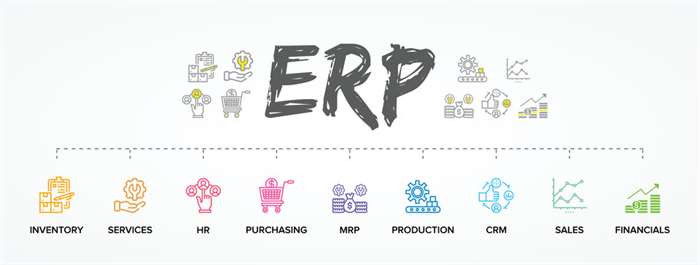OEMs choose an acceptable system integrator with relevant knowledge, expertise, and sources to supply complete customer assist and predictive upkeep. A service contract with manufacturers offers a quantity of advantages to utility industries regarding design, integration, and delivery. Factory-trained subject technicians help in installing and dealing on these options in the telecommunication industry. Manufacturers also provide value-added assist, such as distant monitoring and self-diagnostics functions. The telecom trade is transitioning from the fourth era (4G) to the fifth generation (5G) of cell communications.
Although coaching these generalized fashions is an expensive process that features infrastructure, specialised human sources, and know-how, utilizing these fashions is comparatively easy, and so they have high adoption rates. Telecoms are harnessing AI’s highly effective analytical capabilities to fight instances of fraud. AI and machine studying algorithms can detect anomalies in real-time, effectively reducing telecom-related fraudulent activities, similar to unauthorized community access and faux profiles. The system can mechanically block access to the fraudster as soon as suspicious exercise is detected, minimizing the harm.
This assessment is a valuable software for communication service suppliers (CSPs) to optimize their utilization of autonomously pushed software program options. By leveraging these solutions, CSPs can improve community high quality, alleviate network congestion, and elevate the overall buyer experience by providing revolutionary companies and merchandise. Governments worldwide have realized the impact of 5G on digital transformation and are boosting the 5G rollout to drive AI and automation across the telecom industry. The fifth-generation know-how is more doubtless to drive digital transformation, the Internet of Things (IoT) powered by edge computing and AI across the wi-fi telecom sector. Increasing demand for higher high quality services and seamless customer experience is likely to drive the adoption of AI within the telecom industry.
This can be known as the data economic system, an upcoming economic system that is nonetheless in an incipient state. Research topic in this space embody standardisation and interoperability of knowledge units, trust and sovereignty, privacy of personal information, federated data sharing and federated ML, and assurance of moral use. Data foundations are necessary for AI as a result of they supply the uncooked material that AI algorithms use to be taught and make predictions. Without access to high-quality, diverse, and related data, AI techniques wouldn’t be succesful of perform their tasks effectively. Data foundations additionally play a important position to make sure the scalability and maintainability of AI methods over time.

This not solely offers basic performance but in addition minimizes off-hour and consequently enhances a more resilient and reliable telecommunication infrastructure. AI is a game-changer within the fight in opposition to fraud in telecoms, offering immense benefits to the trade. By leveraging AI for fraud detection, telecom corporations can save billions of dollars and defend their customers from harm. Moreover, AI has the potential to reinforce the general efficiency and customer support in the telecom trade. Embracing this innovative know-how represents a significant alternative for telecoms to not solely address an ongoing drawback but also drive industry-wide evolution and progress. Emerging AI technologies and functions, similar to generative AI, have the potential to transform the industry by enabling customized experiences, autonomous networks, and streamlined operations.
CSPs are leveraging AI algorithms to reroute traffic, optimize community efficiency, and mitigate critical incidents. For occasion, anomaly detection techniques can determine potential points and problematic community habits, forecast the decline of key efficiency metrics, and pinpoint the possible cause, contributing to community optimization ai. By implementing AI and automation, telecom corporations can reduce operational costs while enhancing the customer expertise. Artificial intelligence has already helped the core of the telecommunication business, with machines doing human duties, such as deciding the route visitors by studying network content. It also helps in constructing the self-optimizing network, which can construction the system based on current situations per the limits set by the respective designer.
The Influence Of Artificial Intelligence On Telecommunication Enterprises: Community And Customer Expertise
The telecom industry is at the forefront of technological innovation, and artificial intelligence (AI) is taking part in a serious position in this transformation. AI is being used to enhance network performance, automate customer service tasks, and develop new products and services. The region has emerged as a forerunner in superior networking in current years, with Qatar, Saudi Arabia, Bahrain, and the UAE deploying 5G networks. In July 2021, Middle East telecom giants Zain Group, STC Group, Etisalat Group, du, and Mobily agreed to collaborate on deploying Open Radio Access Network (Open RAN) solutions to their existing networks.

This growth is attributed to the fast technological developments in emerging economies, similar to China and India. For occasion, Huawei Technologies Co., Ltd., a worldwide telecommunications equipment and consumer electronics supplier, cooperates with China Telecom Corporation Ltd., an web access and cellular telecommunications services supplier. This collaboration will discover radio cell capability prediction and wireless network cell anomaly detection based mostly on the Network AI Engine (NAIE).
The Future Of Ai In Telecommunications
Further, because it grows finally, we will count on to see more and more telecoms undertake generative AI capabilities. The way forward for telecom belongs to those who harness the facility of generative AI, whereby an AI app growth providers company can help you innovate, adapt, and lead in this dynamic and ever-evolving industry. The growing adoption of AI solutions in various telecom purposes and use of AI in telecommunication to scale back operational prices are the main elements driving the market development. By analyzing historic data, AI algorithms can discern patterns and behaviors linked with fraud. This capacity might enable telecoms to pre-emptively stop fraud, thus diminishing its impact on customers and the company’s profits.
Telecom companies are working to construct an infrastructure supporting each vertical managed by the Internet of Things (IoT). The AI in telecommunication market is segmented on the premise of part, deployment model, technology, application, and area. By know-how, the market is split into machine learning, pure language processing (NLP), knowledge analytics, and others. By utility, it’s segmented into customer analytics, network security, community optimization, self-diagnostics, virtual assistance, and others.
Finding the primary place where upkeep is required takes up the overwhelming majority of community maintenance time. Further, telecom firms are leveraging IoT, which is driving the adoption of artificial intelligence in telecommunication. Therefore, the growing adoption of AI options in various telecom functions propels the growth of the AI in telecommunication market. CSPs have vast numbers of shoppers engaged in tens of millions of day by day transactions, every susceptible to human error. Robotic Process Automation (RPA) is a type of business process automation expertise based mostly on AI. RPA can convey higher effectivity to telecom features by allowing telcos to more simply handle their back-office operations and huge volumes of repetitive and rules-based actions.
Options
To be successful, the beginning of the AI journey requires that CSPs fastidiously design data pipelines which might be centered around the problem(s) they’re trying to resolve. Beyond querying telecom information, the AI chatbot introduced by TCXC also allows partners to inquire about their transactions historical past in a conversational method. This revolutionary feature is yet one more step forward in making complicated data easily accessible and comprehensible, lowering the time spent on guide searching, checks and queries.
As AI-powered digital assistants and chatbots become commonplace, clients benefit from personalised interactions, while firms find themselves on the cusp of an AI-driven revolution. Telecom’s future is one the place predictive analytics, cost-effective and elevated service quality reign supreme. AI-enabled the telecom industry to extract actionable enterprise insights and enhance customer expertise. Predictive maintenance, network AI in Telecom optimization, anomaly detection, robotic process automation (RPA), and fraud detection, among others, are some ways AI has contributed to the telecom industry. AI-driven predictive analytics are serving to telecoms provide better companies by utilizing information, sophisticated algorithms, and machine learning strategies to foretell future results based mostly on historical knowledge.
AI-driven predictive analytics can monitor the state of apparatus and anticipate failure based mostly on patterns, permitting telecom companies to plan maintenance earlier than points happen. Telecom firms can shield their revenues and customers by addressing these anomalies in actual time, thus preventing fraudulent activities. Implementing real-time anomaly detection is a crucial step for telecom firms in enhancing their security and making certain a secure and trustworthy surroundings for his or her clients. Having examined the key challenges in AI for telecommunications suppliers and potential options, let’s now discover particular technical domains where AI truly shines. For corporations offering telecom consulting providers, greedy these vital AI-driven areas is important to offer priceless insights in this evolving business.

Customers within the telecom sphere have grown more demanding, looking for higher-quality companies and exceptional buyer experiences. AI has the potential to assist telecom firms elevate their service quality and customer satisfaction, thereby enhancing their aggressive edge in a crowded marketplace. The telecommunications panorama is grappling with the exponential progress https://www.globalcloudteam.com/ of global network visitors and the ever-increasing need for community infrastructure. The telecommunications industry is understood for its complexity, with success hinging on environment friendly operations throughout various business items.
Ai-powered Chatbots And Digital Assistants
Data could also be fragmented or saved throughout completely different methods, unstructured and uncategorized, or simply incomplete and not very helpful. TCXC’s forward-thinking investments in programmability have placed them on the forefront of technological evolution, reflecting a dedication to both anticipating and using rising tech developments. As the function of AI continues to broaden, TCXC’s pioneering position allows them to not only adapt but actively shape the way ahead for the telecom sector. Real-time visitors evaluation and network reconfiguration is something AI can do extraordinarily nicely.
- The telecom trade is poised to profit from the power of AI, enabling operators to lead the way within the digital transformation panorama.
- Additionally, AI can revolutionize customer experiences by personalizing companies, anticipating buyer wants, and enabling proactive issue resolution.
- AI can present major enhancements to the telecom business, similar to higher site visitors routing, improved network efficiency, and decreased important incidents, resulting in enhanced automation and a superior customer experience.
- An adaptive strategy for improved time detection might help telecom corporations respond to fraud threats more rapidly and effectively.
- Increasing demand for higher high quality providers and seamless buyer experience is likely to drive the adoption of AI within the telecom business.
- Having covered numerous challenges and utility areas for AI in telecommunications, let’s now take a fast glimpse at some AI telecom use instances.
As AI continues to evolve, so too will its function in telecommunications, promising a future of enhanced connectivity, service, and innovation. The telecommunications industry, typically seen because the spine of today’s hyper-connected world, is present process a large transformation. From predictive maintenance of infrastructure to customer support enhancements, AI’s affect on the telecom sector is undeniable and profound. This article delves into the important thing areas the place AI is reshaping the way the telecom industry operates. Addressing skill gaps and resource constraints is essential for telecom corporations to successfully implement AI technologies and functions. Companies ought to start with strategies that have lower entry limitations, such as virtual assistants for customer service.
Harnessing The Facility Of Generative Ai In Telecom: Every Little Thing You Should Know
While the worldwide marketplace for AI in telecommunications is growing rapidly, many companies are battling the complexities of implementing AI. Beyond recognizing the necessity for AI and discovering suitable use cases, there’s a vary of challenges that CSPs should overcome to leverage AI successfully. Gone are the days when telcos had been limited to offering fundamental solutions like telephone and internet service.

Recent Comments